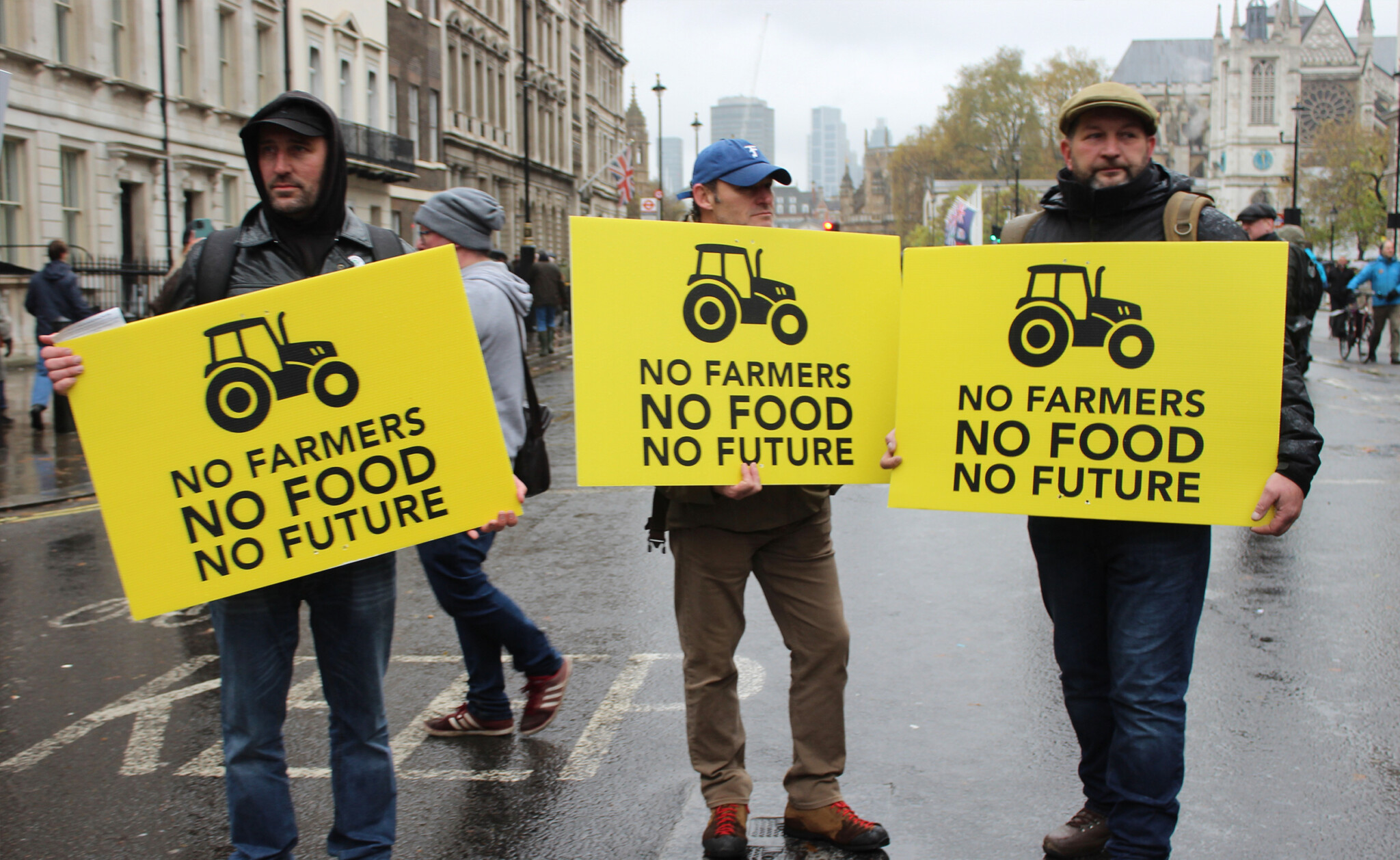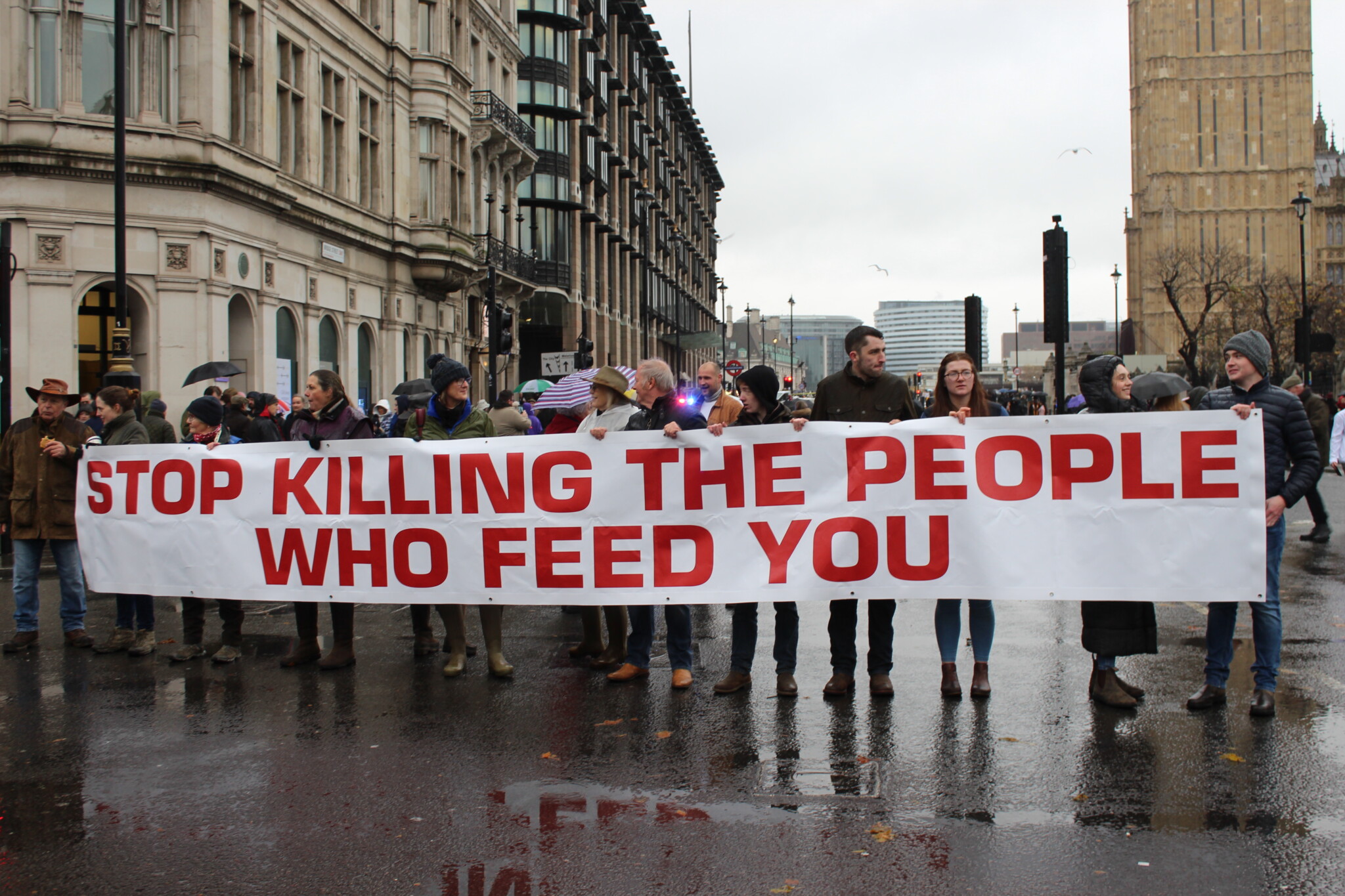It matters how we understand the country we live in, its people, and their relation to the land. While the bureaucratic vision of the world sees things solely in terms of efficiency and quantity, another vision understands that the frameworks we use to measure do not coincide with the things being measured. Those with a close tie to the land and to nature, those who grow our crops and raise animals must of course “be productive”, that is to say, know how things work. But this is an entirely different way of being and acting in the world, one that begins from the ground up, with practical skills and understanding, rather than a top-down approach that sees land as blank space to be filled, people as fungible beings without roots or differences, and history as something to be swept away in the wake of never-ending progress.
That The Labour Party would wage war on farmers is not a surprise. We do not need to compare their bid to close a tax loophole regarding inheritance tax as the first step in a Stalinist attempt to liquidate farmers and nationalize their farms, although it is certainly worth asking whether there is a land-grab operation in effect here: forcing farmers to sell their holdings clearly opens up the possibility of mega-farms and smaller and more powerful landlords, although these would likely be the already-rich, rather than the state (although corporatism—the fusion of state, economy, and media—is arguably worth considering as a description of our current moment, where government, judiciary and media march in lockstep). Is the attack on farmers part of the Net Zero project? Is the government planning to build on green- and grey-belt land? It’s possible.
Enjoy independent, ad-free journalism - delivered to your inbox each week
In any case, Labour didn’t need to do this. Financially breaking generational ties in farming families is punitive and unlikely to generate much income in any case. There are many other ways of raising money: the civil service and the NHS are, at this point, bloated as institutions. As Jeremy Clarkson – champion of farmers – pointed out in a fractious interview with BBC’s Victoria Derbyshire, there are plenty of other ways money for public services could be raised. As he put it with characteristic bluntness: “walk into any of the offices around here. If you don’t understand what someone’s job is, fire them.”
Farmers gathered in Westminster on Tuesday to protest Labour’s proposed tax changes, which, it turns out, they proposed without impact assessment. While Labour had claimed that only a few hundred farms would be affected by the tax changes, the National Farmers’ Union (NFU) and the Country Land and Business Association suggest that around 70,000 farms will be hit. Deeper than squabbling over the numbers is a question of priority: Labour know that farmers – the very antithesis to the urban base – are not Labour voters (like the elderly, also targeted by the cutting of the winter fuel allowance and, even more disturbingly, by the proposed assisted dying bill). The countryside is a place of tradition and “old ways”: a source of amusement if not outright contempt from the city-minded who are cut off from the source of their food and the people who produce it.

But without farmers, life simply ceases. Currently, slightly under half of the actual food on plates is produced in the UK, “including the majority of grains, meat, dairy, and eggs”. according to the government. We are not by any means self-sufficient, though supply chains issues and disruption through unrest or lockdowns are always possible, as we have recently seen. A government that appreciated and respected those who worked on the land – a difficult and intense job – would be working with farmers to increase the food supply, to prevent supermarket loss-leading tactics on milk, and so on. It would accept and admire the differences between countryside and city, and would understand that without the former, the latter cannot run. The short-sighted arrogance of the spreadsheet-minded can’t be overstated.
The short-sighted arrogance of the spreadsheet-minded can’t be overstated.

Banners at the protest yesterday, as rain drizzled down – though who is better placed to handle the vicissitudes of the weather than farmers? – declared “stop killing the people who feed you”, “no farmers, no food, no future”, and “never corner a farmer, it always ends badly”. There was humor and fellow-feeling, as well as anger and disbelief at the government’s agenda. We do not yet know exactly how sinister the Labour party is, although we have pretty clear indications, given their responses to social media posts and the mere presence of people during July’s unrest in response to the murder of three girls in Southport. The desire to bureaucratize everything and to eradicate history is a totalitarian impulse. Pretending farmers are hoarding money that should be owned by the state is a terrible step. The shires will oppose such calumny, as yesterday’s protest shows: we should stand by farmers, in the UK and elsewhere: they know what they are doing, and the government, manifestly, does not.




Comments (0)
Only supporting or founding members can comment on our articles.